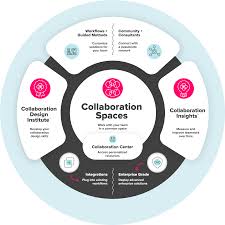The Importance of Diversity Training Programs
Diversity training programs are essential in today’s diverse workplace environment. These programs are designed to educate employees on the importance of diversity, equity, and inclusion. By fostering a culture of understanding and respect for differences, diversity training programs help create a more inclusive and welcoming workplace for all employees.
One of the key benefits of diversity training programs is that they help reduce bias and discrimination in the workplace. By raising awareness about unconscious biases and promoting empathy and understanding, these programs can help prevent discriminatory behavior and promote a more harmonious work environment.
Furthermore, diversity training programs can also improve communication and collaboration among employees from different backgrounds. By learning how to effectively communicate with colleagues who have different perspectives and experiences, employees can work together more effectively as a team.
Another important aspect of diversity training programs is that they help organizations attract and retain top talent. In today’s competitive job market, many job seekers actively seek out employers who prioritize diversity and inclusion. By investing in diversity training programs, organizations can demonstrate their commitment to creating a diverse and inclusive workplace, which can help attract a wider pool of qualified candidates.
In conclusion, diversity training programs play a crucial role in promoting inclusivity, reducing bias, improving communication, and attracting top talent. Organizations that prioritize diversity training benefit from a more engaged workforce, reduced turnover rates, and a stronger reputation as an employer of choice.
9 Benefits of Diversity Training Programs That Drive Workplace Success
- Promotes understanding and respect for differences
- Reduces bias and discrimination in the workplace
- Improves communication and collaboration among employees
- Enhances employee engagement and morale
- Attracts a more diverse pool of talent
- Helps create a more inclusive work environment
- Increases productivity and innovation through diverse perspectives
- Fosters a culture of empathy and mutual respect
- Supports organizational growth and success
Challenges of Implementing Diversity Training Programs: Resistance, Perception, and Practical Concerns
- Resistance from employees who may feel forced to participate in diversity training programs.
- Diversity training programs may be seen as superficial or tokenistic if not implemented effectively.
- Some employees may perceive diversity training as a form of punishment rather than a learning opportunity.
- There is a risk of diversity training reinforcing stereotypes or inadvertently causing more harm than good.
- Diversity training programs can be time-consuming and costly for organizations to implement and maintain.
Promotes understanding and respect for differences
Diversity training programs play a vital role in promoting understanding and respect for differences in the workplace. By providing education on various cultures, backgrounds, and perspectives, these programs help employees develop empathy and appreciation for the unique experiences of their colleagues. This increased awareness fosters a culture of inclusivity where individuals are valued for their differences, leading to improved teamwork, communication, and overall workplace harmony.
Reduces bias and discrimination in the workplace
Diversity training programs play a crucial role in reducing bias and discrimination in the workplace. By raising awareness about unconscious biases and promoting empathy and understanding, these programs help employees recognize and address their own biases. Through education and open dialogue, diversity training fosters a culture of respect for differences and encourages inclusive behavior, ultimately creating a more equitable and harmonious work environment where all employees feel valued and respected.
Improves communication and collaboration among employees
Diversity training programs play a crucial role in improving communication and collaboration among employees from diverse backgrounds. By providing employees with the tools and knowledge to navigate differences effectively, these programs help foster a culture of open dialogue and mutual respect. When employees learn how to communicate respectfully and empathetically with colleagues who have different perspectives and experiences, they can work together more cohesively as a team. This enhanced communication and collaboration not only improve productivity and efficiency but also contribute to a more inclusive and harmonious work environment where all voices are valued.
Enhances employee engagement and morale
Diversity training programs have been shown to enhance employee engagement and morale within organizations. By fostering a culture of inclusivity and respect for differences, these programs create a sense of belonging among employees from diverse backgrounds. When employees feel valued and respected for who they are, they are more likely to be engaged in their work and feel motivated to contribute their best efforts. This increased engagement leads to higher morale throughout the organization, resulting in a more positive and productive work environment for all employees.
Attracts a more diverse pool of talent
Diversity training programs play a vital role in attracting a more diverse pool of talent to organizations. By demonstrating a commitment to creating an inclusive and welcoming workplace through these programs, organizations can appeal to job seekers from various backgrounds. This proactive approach not only helps in recruiting top talent from different demographics but also fosters a culture where individuals feel valued and respected for their unique perspectives and experiences. Ultimately, attracting a diverse pool of talent through diversity training programs can lead to increased creativity, innovation, and productivity within the organization.
Helps create a more inclusive work environment
Diversity training programs play a crucial role in helping create a more inclusive work environment by fostering understanding and respect for differences among employees. By raising awareness about the importance of diversity, equity, and inclusion, these programs encourage employees to embrace diverse perspectives and experiences. This leads to a workplace culture where everyone feels valued, respected, and included, ultimately enhancing collaboration, communication, and overall employee satisfaction.
Increases productivity and innovation through diverse perspectives
Diversity training programs offer a significant advantage by enhancing productivity and fostering innovation within organizations through the inclusion of diverse perspectives. When employees are exposed to different viewpoints, backgrounds, and experiences, they are more likely to approach challenges and tasks from various angles, leading to creative solutions and innovative ideas. By valuing diversity and promoting an inclusive work environment, organizations can leverage the unique strengths of their diverse workforce to drive productivity and achieve greater success in today’s dynamic business landscape.
Fosters a culture of empathy and mutual respect
Diversity training programs play a crucial role in fostering a culture of empathy and mutual respect in the workplace. By educating employees on the importance of understanding and respecting differences, these programs help cultivate a sense of empathy towards colleagues from diverse backgrounds. This increased empathy leads to better communication, collaboration, and overall harmony among team members. When employees learn to appreciate and respect each other’s unique perspectives and experiences, they are more likely to work together effectively and create a positive and inclusive work environment for everyone.
Supports organizational growth and success
Diversity training programs support organizational growth and success by fostering a culture of innovation and creativity. When employees from diverse backgrounds come together, they bring a variety of perspectives, ideas, and experiences to the table. This diversity of thought can lead to more effective problem-solving, increased productivity, and enhanced decision-making processes. By embracing diversity through training programs, organizations can tap into the full potential of their workforce and position themselves for long-term success in an ever-changing global marketplace.
Resistance from employees who may feel forced to participate in diversity training programs.
Resistance from employees who may feel forced to participate in diversity training programs can be a significant con of such initiatives. When employees perceive diversity training as mandatory rather than voluntary, they may approach the training with skepticism or resistance. This resistance can hinder the effectiveness of the program, as individuals may be less receptive to the concepts being presented and may not fully engage in the learning process. Additionally, feeling compelled to participate in diversity training can lead to resentment among employees, potentially creating a negative work environment rather than fostering a culture of inclusivity and understanding. Addressing this resistance and finding ways to make diversity training programs more engaging and voluntary can help mitigate this con and enhance the overall impact of such initiatives.
Diversity training programs may be seen as superficial or tokenistic if not implemented effectively.
When diversity training programs are not implemented effectively, they run the risk of being perceived as superficial or tokenistic. In such cases, employees may view these programs as mere checkboxes to fulfill diversity requirements rather than genuine efforts to promote inclusivity and equity in the workplace. This can lead to a lack of engagement and buy-in from employees, ultimately undermining the intended goals of the training. To be truly effective, diversity training programs must be thoughtfully designed, consistently reinforced, and integrated into all aspects of organizational culture to ensure meaningful and lasting impact.
Some employees may perceive diversity training as a form of punishment rather than a learning opportunity.
Some employees may perceive diversity training programs as a form of punishment rather than a learning opportunity. This perception can arise when employees feel that they are being forced to participate in training that they believe is unnecessary or irrelevant to their job responsibilities. When diversity training is presented in a mandatory or punitive manner, employees may resist the content and disengage from the learning process. This resistance can hinder the effectiveness of the training program and create a negative attitude towards diversity initiatives within the organization. It is important for employers to address these concerns and ensure that diversity training is presented in a positive and constructive manner to encourage active participation and genuine learning among employees.
There is a risk of diversity training reinforcing stereotypes or inadvertently causing more harm than good.
One potential con of diversity training programs is the risk of inadvertently reinforcing stereotypes or causing more harm than good. In some cases, poorly designed diversity training sessions may oversimplify complex issues or unintentionally perpetuate stereotypes by focusing too heavily on individual characteristics rather than systemic inequalities. This can lead to employees feeling tokenized or marginalized, ultimately undermining the intended goal of promoting inclusivity and understanding in the workplace. It is important for organizations to carefully evaluate the content and approach of their diversity training programs to ensure they are effective in challenging biases and fostering genuine cultural competence among employees.
Diversity training programs can be time-consuming and costly for organizations to implement and maintain.
One significant drawback of diversity training programs is the potential strain they can place on an organization’s resources. Implementing and maintaining these programs require a substantial investment of both time and money. From developing customized training materials to hiring external consultants or trainers, the costs associated with diversity training can quickly add up. Moreover, the time spent by employees participating in these programs can take them away from their regular work duties, impacting productivity and potentially leading to additional expenses for overtime or temporary staffing. As organizations strive to balance their commitment to diversity and inclusion with financial considerations, the resource-intensive nature of diversity training programs presents a notable challenge that must be carefully managed.




Leave a Reply